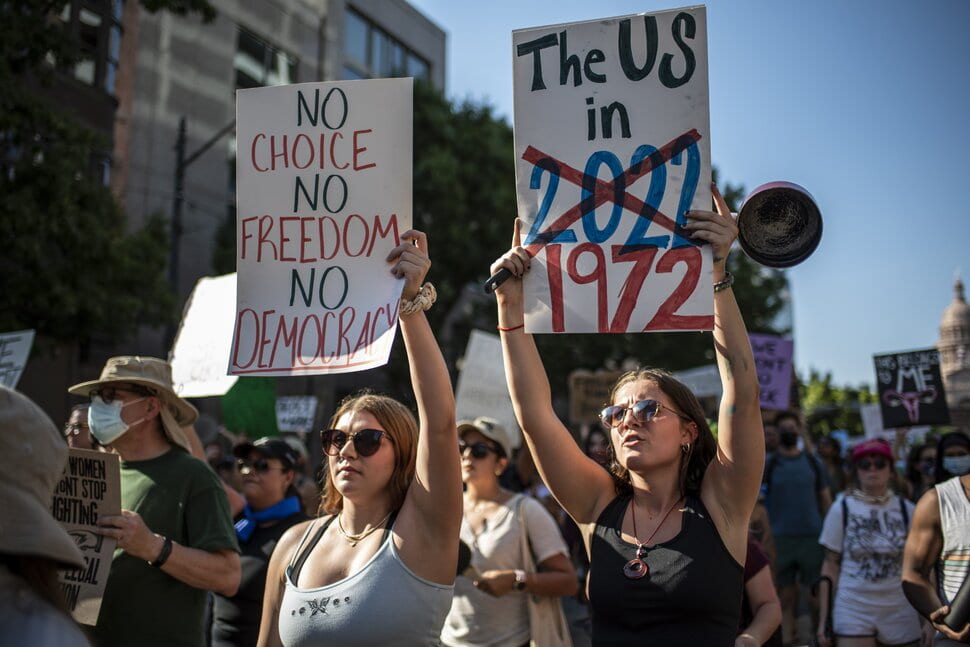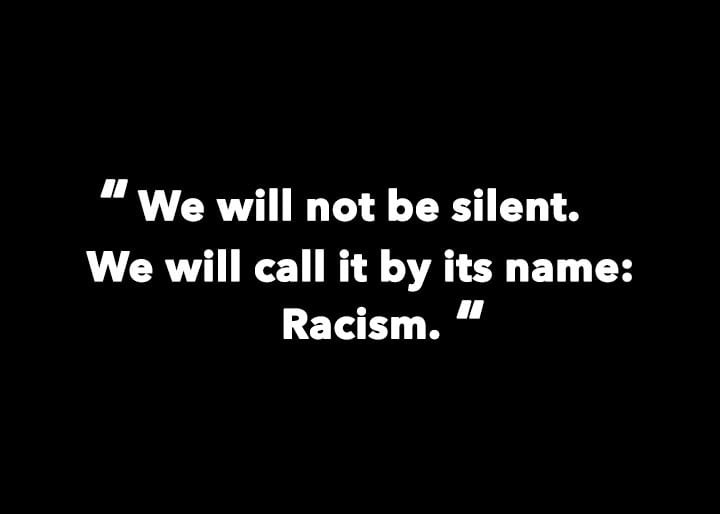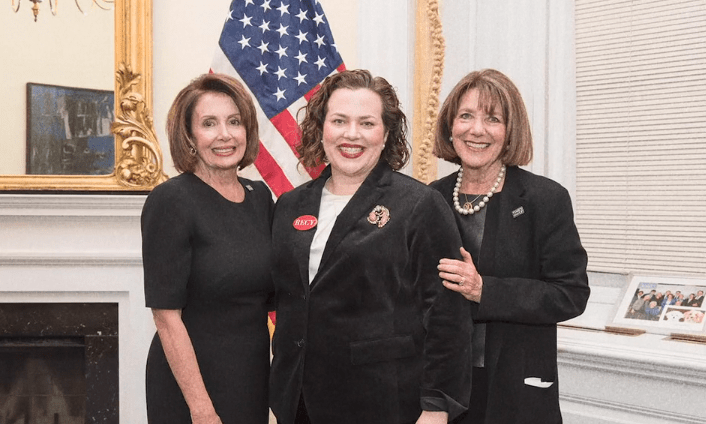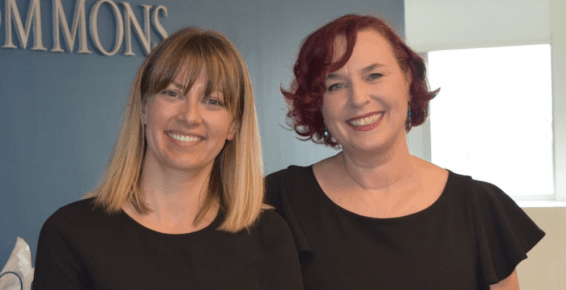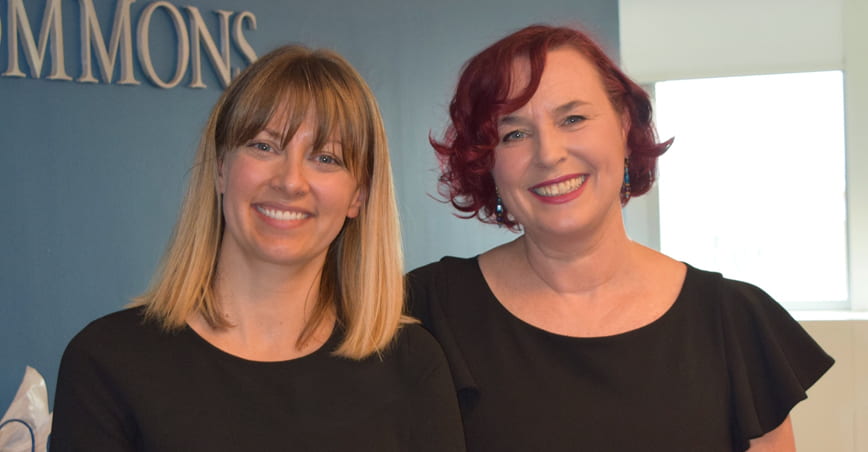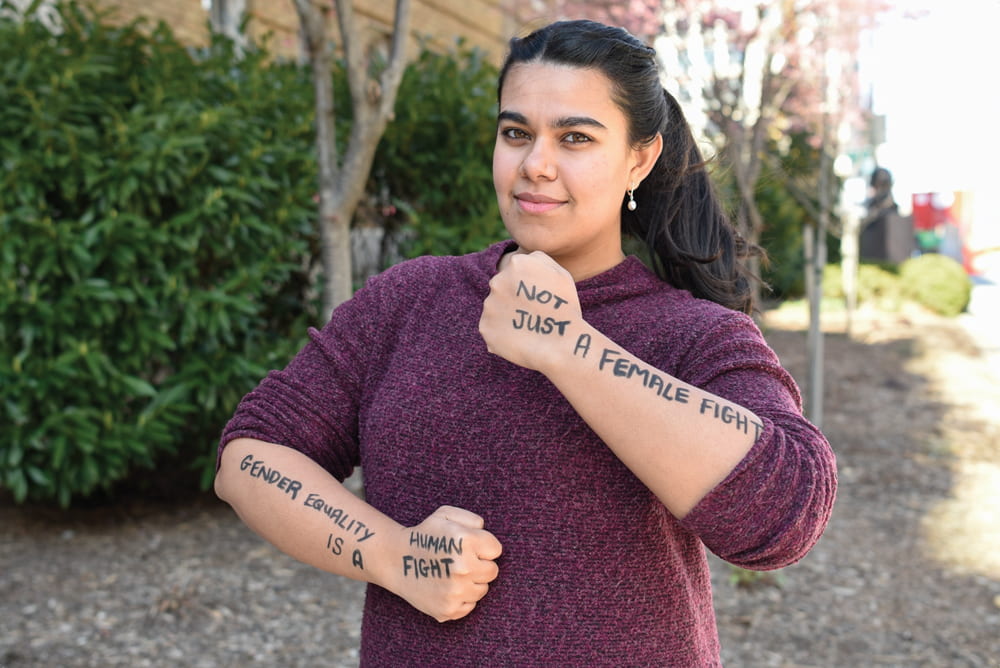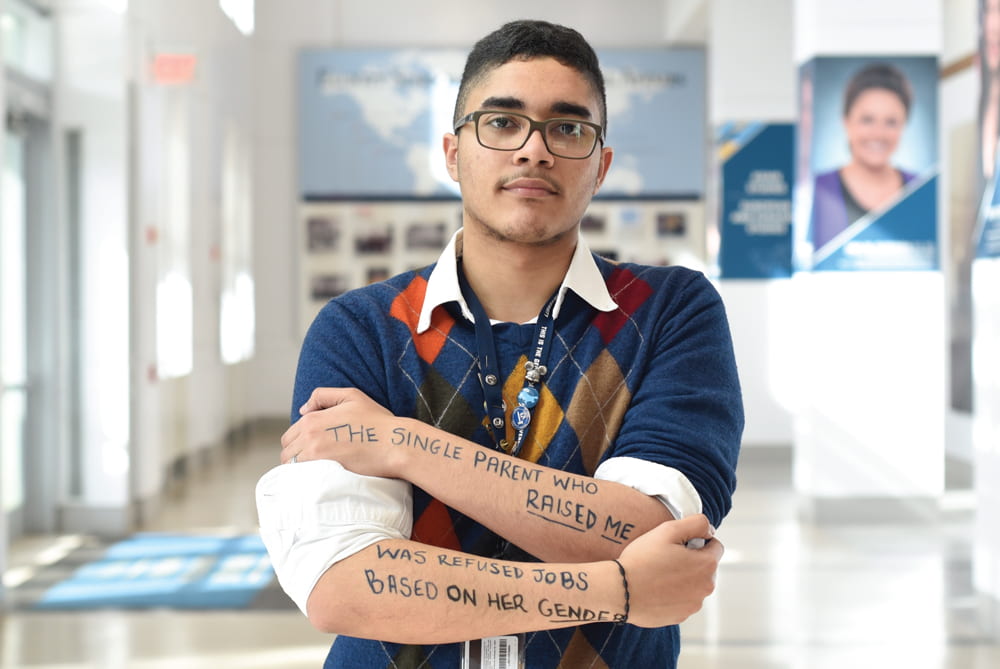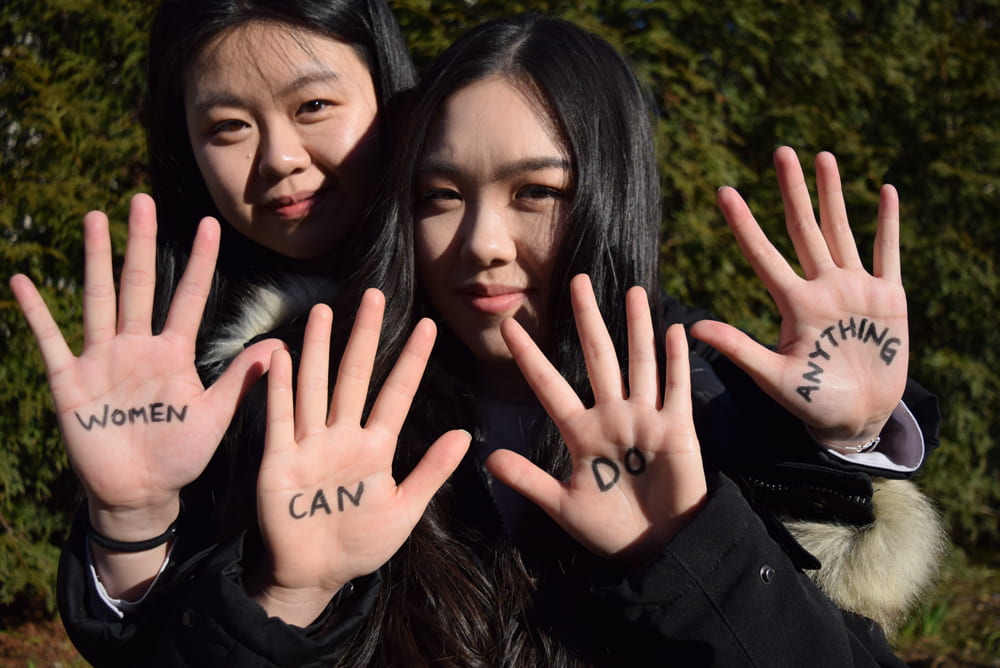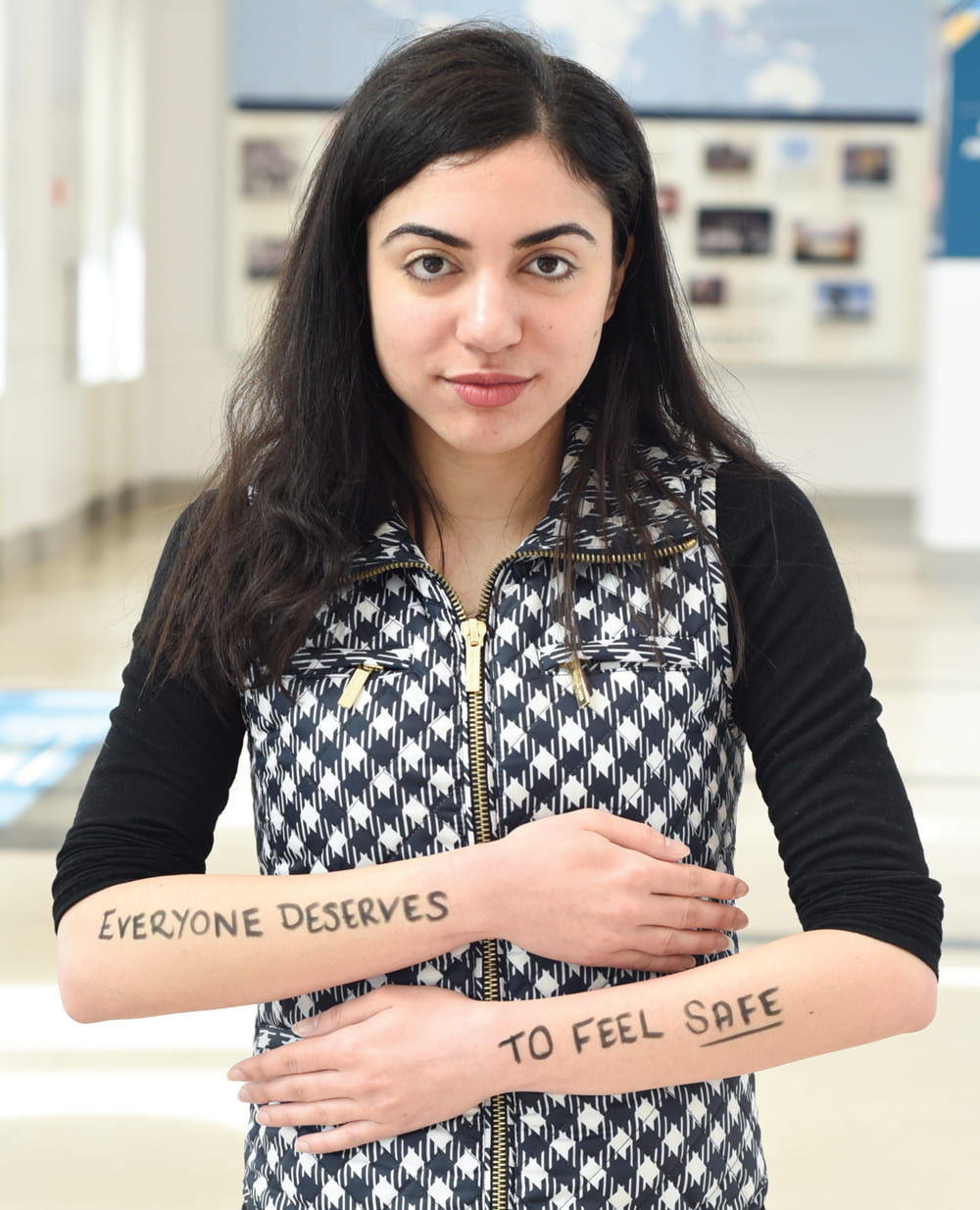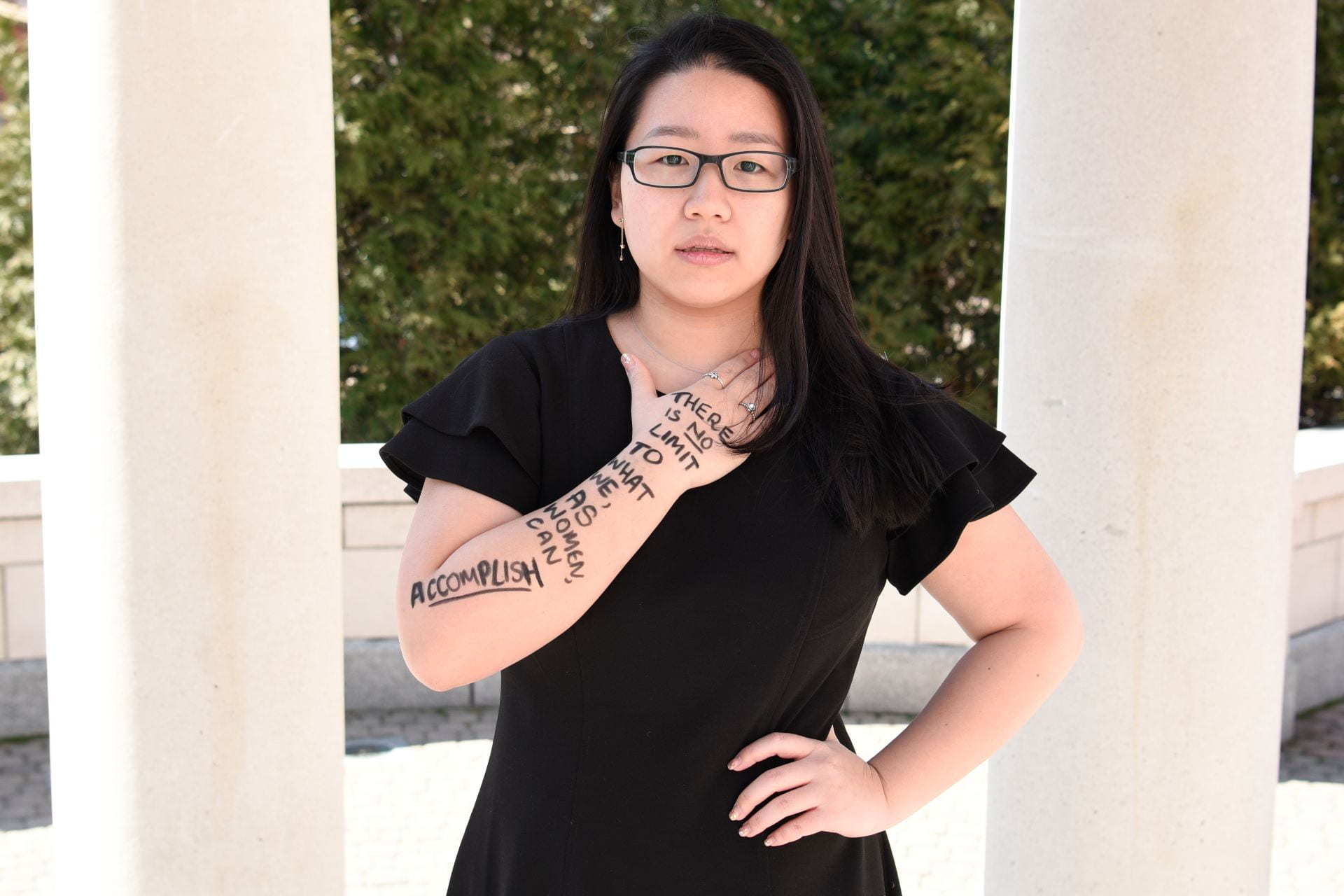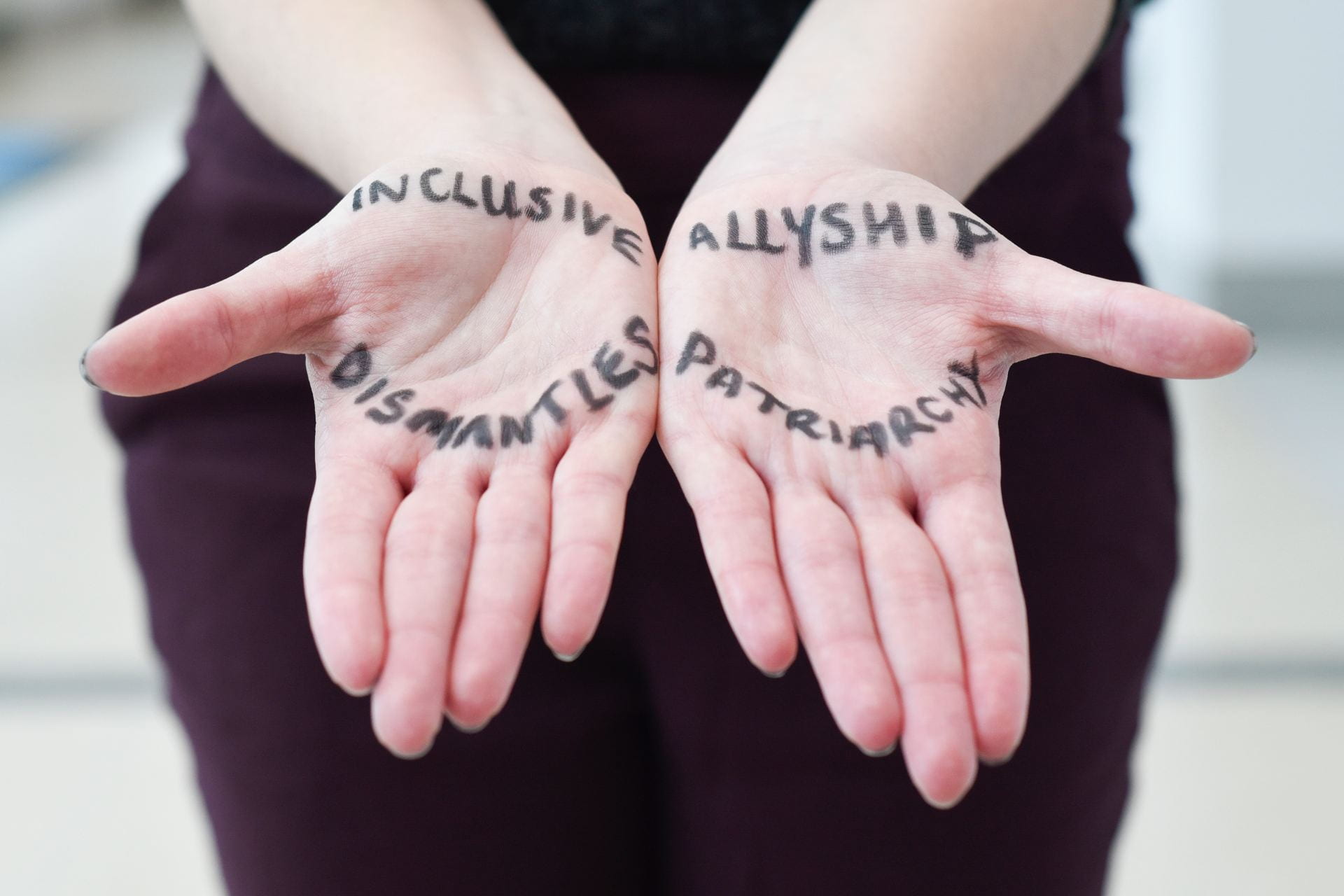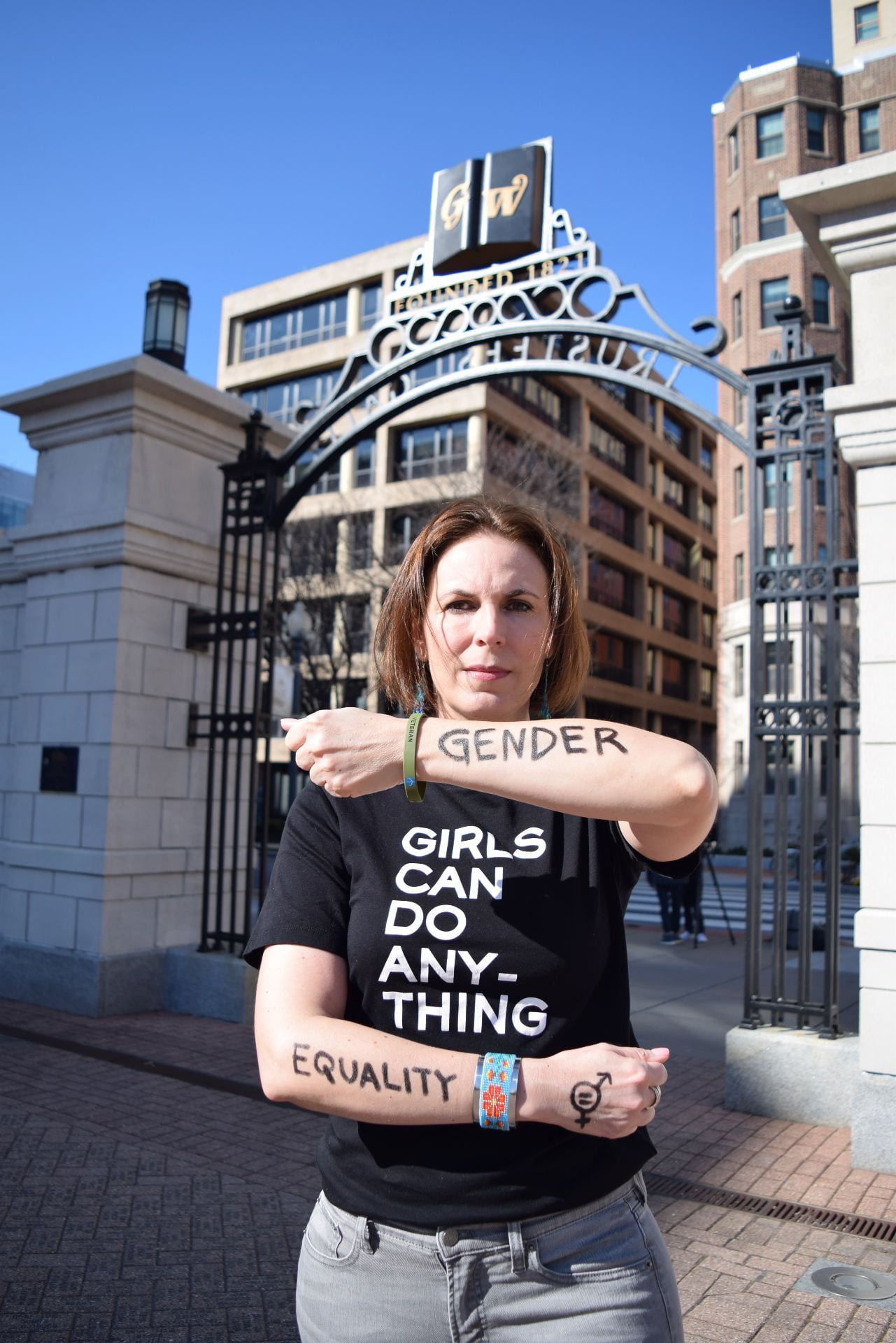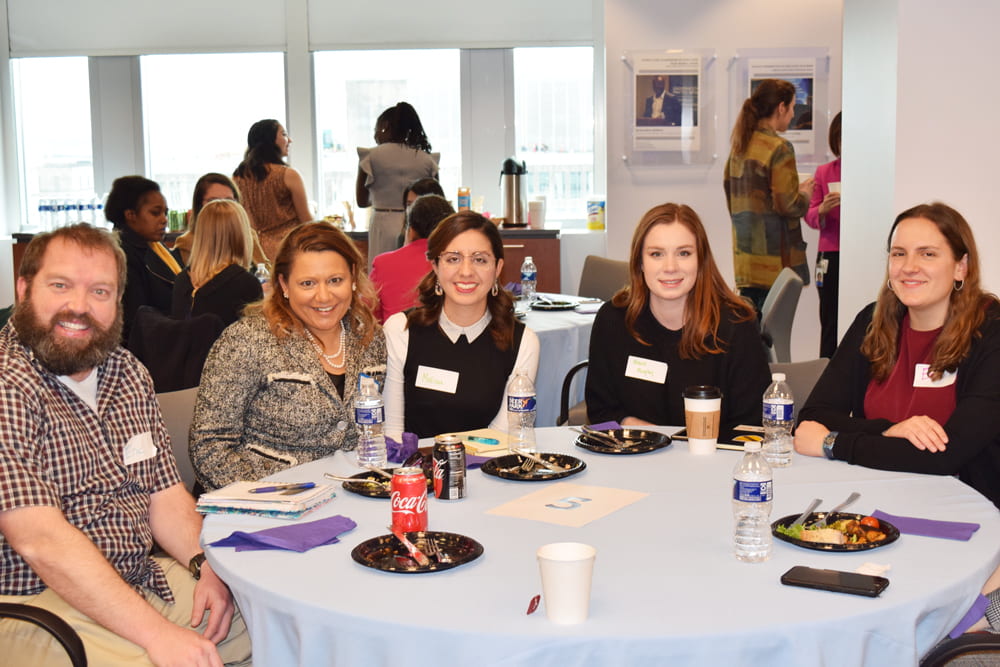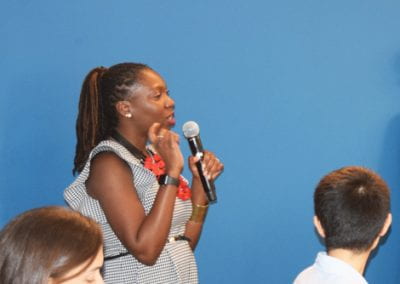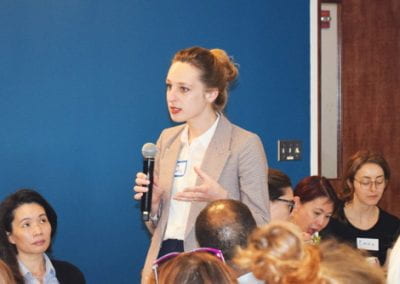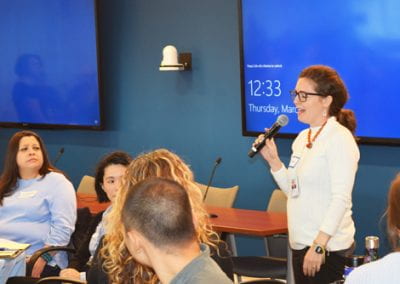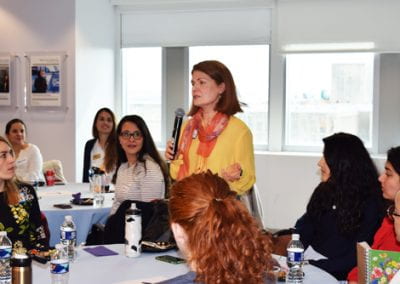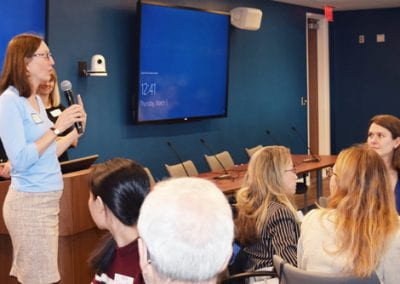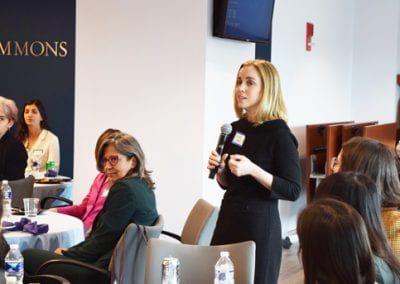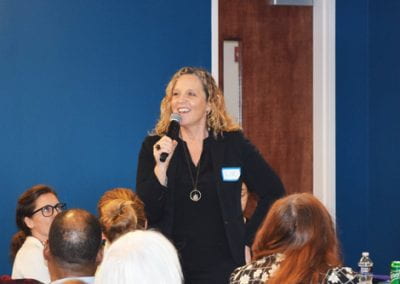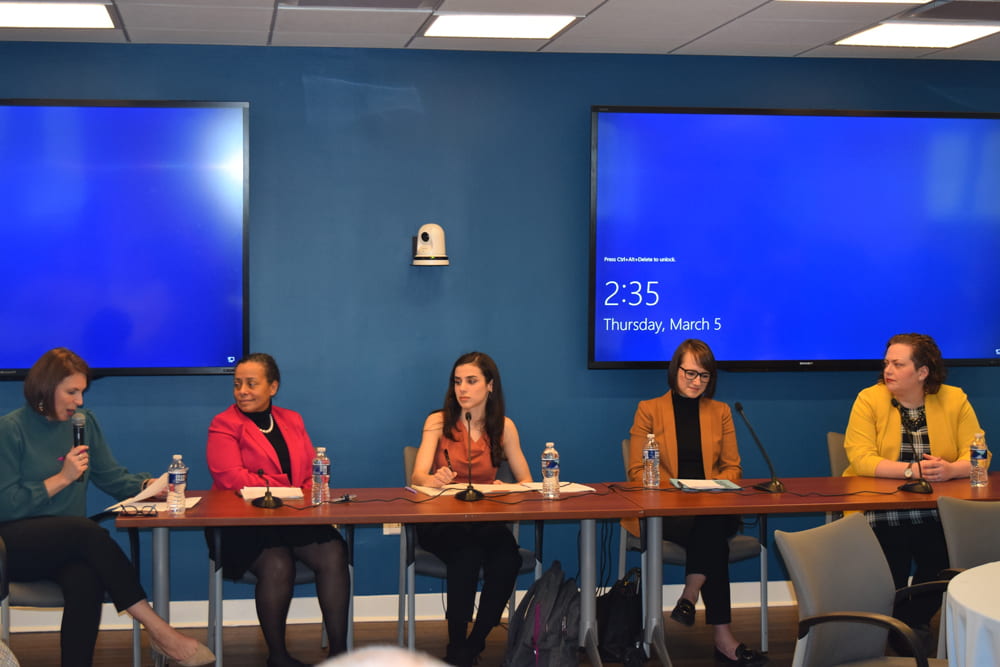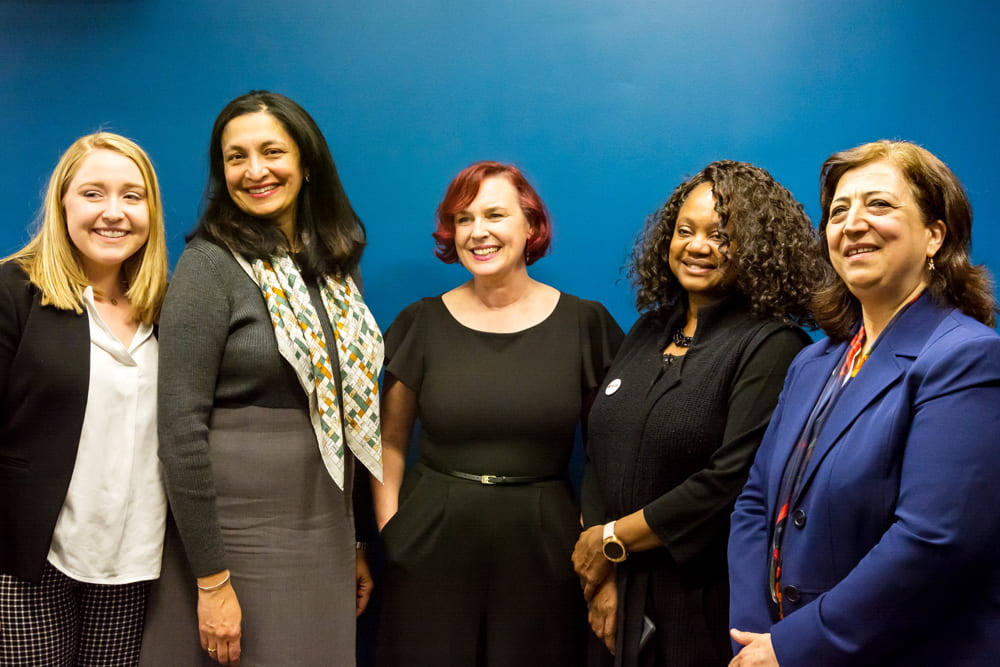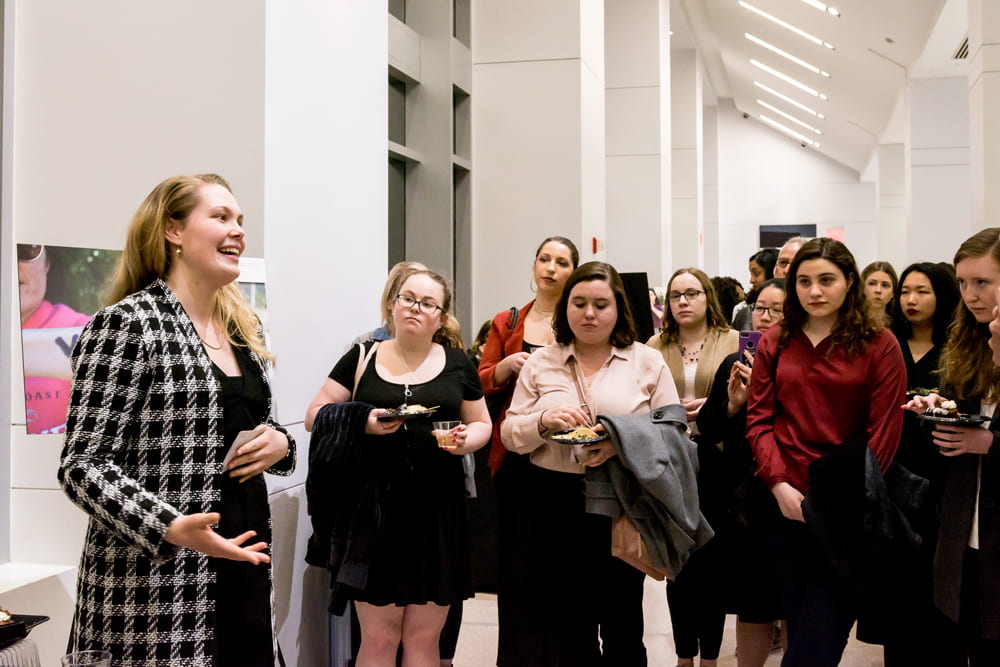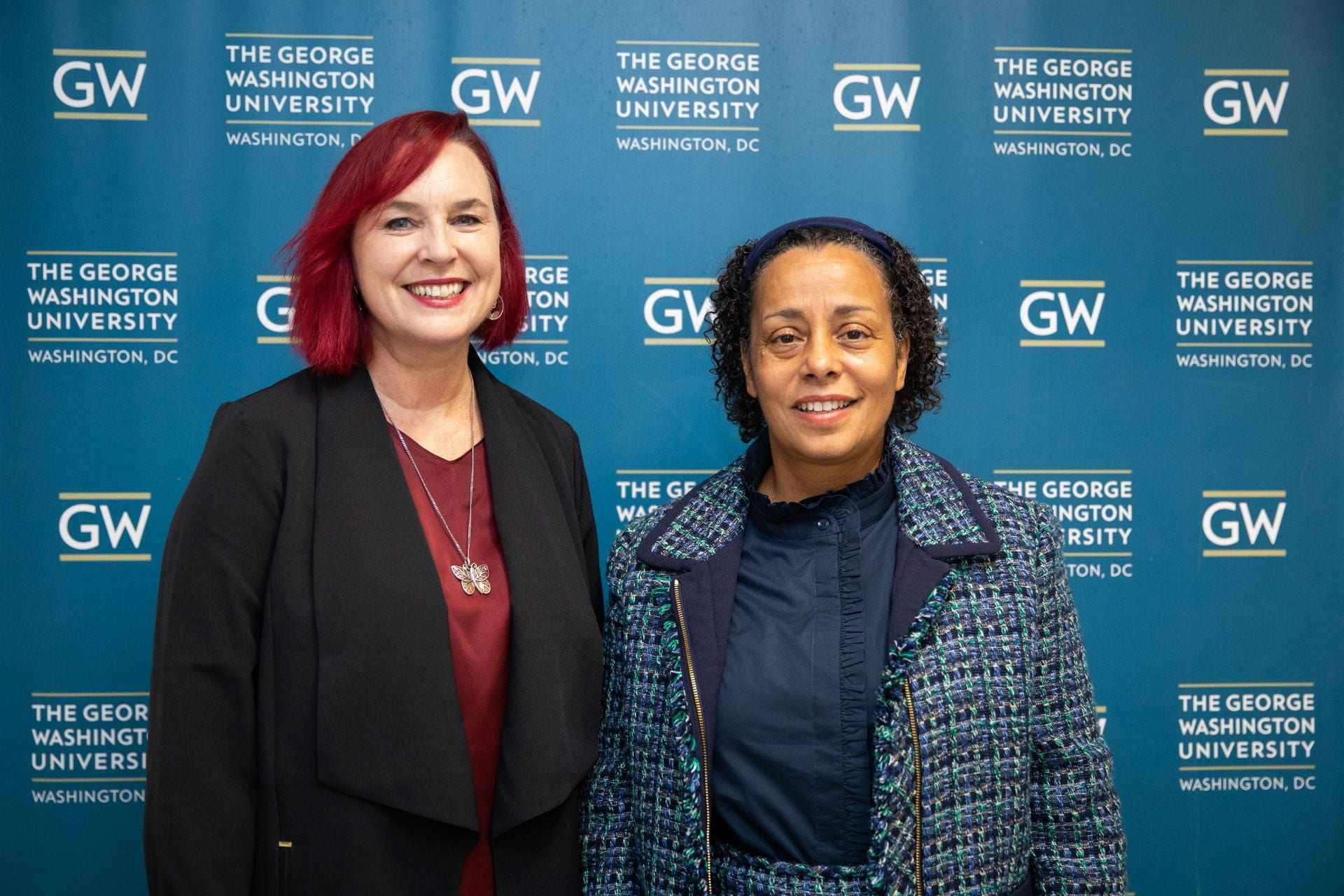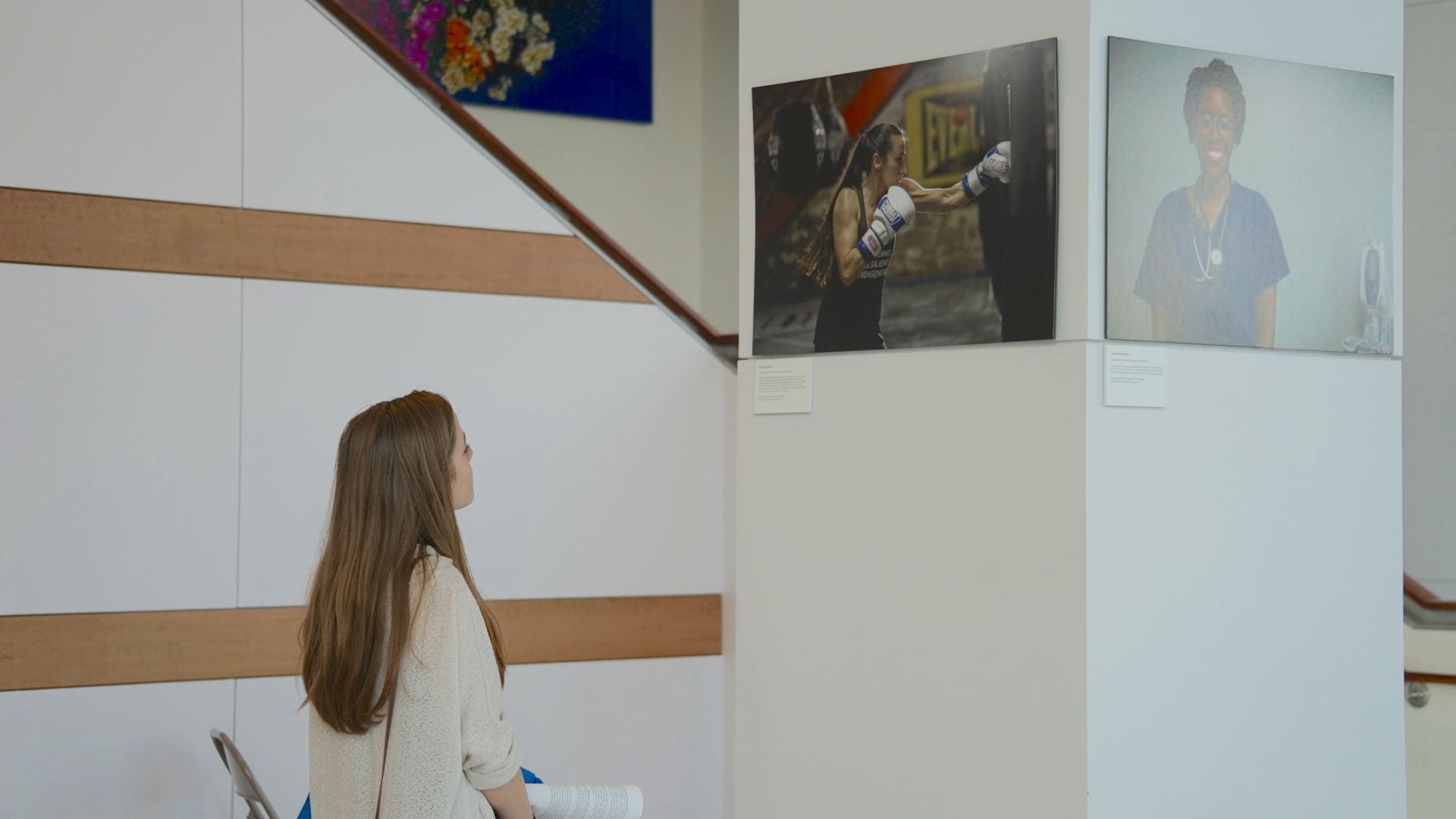The Gender Equality Initiative in International Affairs celebrated International Women’s Day on March 7, 2019. The theme of the celebration was The Year of Women in Politics. As part of the celebrations, GEIA led and curated the creation of the Photo-Exhibition of Women in Politics 2019 titled “Celebrating 2019: The Year of Women in Politics”. It featured Global Women Leaders of the #MeToo Movement, and women who had run or won in the US MidTerm Elections 2018.
A panel discussion was also held on, and featured distinguished speakers – Gwen K Young, Director, Women in Public Service Project, Woodrow Wilson Center; Ianta Summers, Leader, Women‘s March; Frieda Edgette, Founder, Courage to Run; and Lisa Schroeter, ESIA BA ’92, Global Director of Trade and Investment Policy, Dow Chemical Company. Dr. Shirley Graham, Director, GEIA, moderated the panel. The panel discussed the steps needed to be taken to ensure that more women hold decision making positions around the globe.
distinguished speakers – Gwen K Young, Director, Women in Public Service Project, Woodrow Wilson Center; Ianta Summers, Leader, Women‘s March; Frieda Edgette, Founder, Courage to Run; and Lisa Schroeter, ESIA BA ’92, Global Director of Trade and Investment Policy, Dow Chemical Company. Dr. Shirley Graham, Director, GEIA, moderated the panel. The panel discussed the steps needed to be taken to ensure that more women hold decision making positions around the globe.
Please read the remarks made by Dr. Shirley Graham on the occasion.
“Good evening everyone. I’m Shirley Graham the Director of the GEIA here in the Elliott School. On this occasion I would like to remind us all of the importance of international women’s day.
It is an opportunity for us to celebrate the progress we have made towards women’s human rights and gender equality globally.
It is also a day to take pause and reflect on the gender inequality that currently exists in the world and to consider how we can work to create transformative policies and shift attitudes and beliefs to support women’s full equality with men.
Today is indeed a celebration in the US with more women than ever having run in the mid-term elections last year and now serving in Congress. Many women who ran for the first time and represent people from diverse religious, race, socio-economic, age and sexuality backgrounds. 127 women hold seats in Congress, that’s 23.7% of the 535 members[1]
After this panel discussion we will formally launch our Photo Exhibition outside this room. It is titled: ‘2019: the year of women in politics’. Each of these women are ‘firsts’ in different ways such as the first African-American or Native-American woman to win a seat in a particular state or council, as well as the first Muslim women to win seats, and the first openly bi-sexual, lesbian and trans women to run for office or win seats. They have each broken through glass ceilings that previously kept their voices, experiences and knowledge out of political leadership. They join other women throughout US history who have walked a similar path. And as March is also women’s history month and it is important to honor the role so many incredible women have had in raising us all up, I will mention a few of these women.
In 1916 Jeannette Rankin (R-MT) was the first woman elected to the U.S. House of Representatives. 1922 Rebecca Latimer Felton (D-GA) was the first woman appointed to the Senate. 1964 Patsy Takemoto Mink (D-HI) was the first woman of color elected to the House. 1978 Nancy Landon Kassebaum (R-KS) was the first woman elected to the Senate without having previously filled an unexpired Congressional term. 1992 Carol Moseley Braun (D-IL) was the first woman of color elected to the Senate. 1998 Tammy Baldwin (D-WI) was the first openly gay or lesbian person elected to an initial Congressional term. Let’s now take a brief look at some sobering global statistics:
- 1 in 3 women will experience physical or sexual violence in their lifetime, and most of that violenc
e will be by an intimate partner. The OECD estimates that intimate partner violence costs $3.3 trillion annually. This is more than the cost of all current conflicts.
- Only 24% of all parliamentarians are women, which means we have a monolith of men in the most senior political decision-making office. Even though 50% of countries use some type of electoral quota (reserve seats, formal or voluntary quotas).
- It is estimated that 100 million women are missing globally due to pre-natal sex selection abortions, as a result of boy preference.
- Women are fewer than 10% of negotiators at peace tables. Yet, Women’s inclusion in peace processes creates a 35 per cent increase in the agreement lasting 15 years, making a huge difference when peace agreements typically only last 5 years.

- Less than 1% of international aid goes to fragile states targeting gender equality. Yet we now have overwhelming evidence that the more gender equal a country is the more peaceful it is. When we analyse indicators of inclusion, justice and security we can see that those countries with greater equality between women and men are less violent or war prone. [WPS Index produced by Georgetown in 2017].
A report launched by the World Bank this week tells us that only 6 countries have gender equality within the law: Sweden, Luxembourg, Latvia Denmark, Belgium and France. While countries with full equality scored 100, the US received a score of 83.75, tying it with Malawi, Kenya and the Bahamas. Countries that ranked last, scored below 35, and these were United Arab Emirates, Saudi Arabia, Qatar, Iran and Sudan. So, we still have a way to go.
HOWEVER, Coming back full circle to today’s topic – women and politics. Globally we are seeing more women contesting elections. Rwanda has the highest numbers of women in parliament at 61.3%, Mexico has 48.2% and Sweden has 46.1%.
The global #MeToo movement continues to raise awareness of systemic and structural gender discrimination, violence and sexual harassment. AND It is opening up important conversations about gender inequality. This movement is being led by COURAGEOUS women leaders, supported by male allies, in countries as diverse as Nepal, Ecuador, Nigeria, Tanzania, and Bangladesh. Photos of which we have included in our exhibition. There is much progress to be celebrated!”
[1] 106D, 21R. 25 women (25%) serve in the U.S. Senate, 102 women (23.4%) serve in the U.S. House of Representatives
